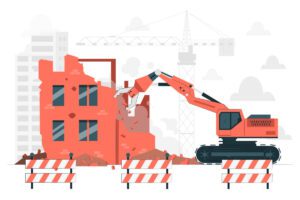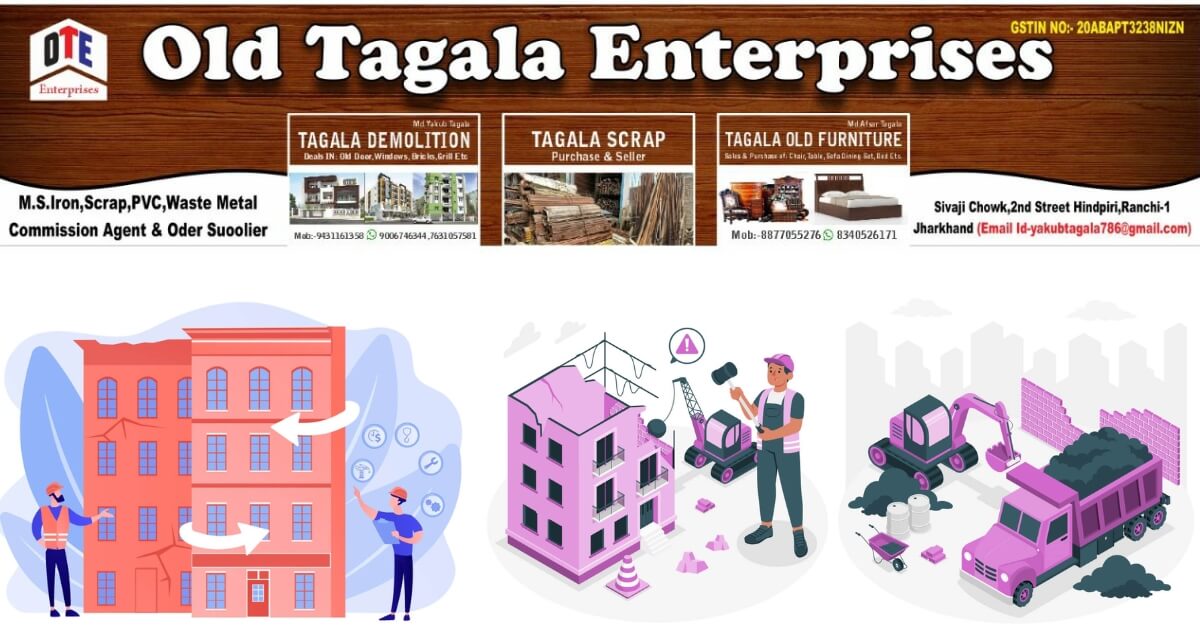In an era where environmental sustainability takes center stage, industries across the spectrum are reevaluating their practices to minimize their ecological footprint. Demolition, an essential aspect of urban development and renewal, presents a significant challenge in terms of waste generation.
However, with the adoption of recycling and sustainable practices, the demolition industry can play a pivotal role in preserving our planet for future generations.
Demolition Waste Management: Embracing Recycling and Sustainable Practices
This article delves into the importance of demolition waste management, highlights the benefits of recycling, and outlines sustainable practices that can revolutionize the way we approach demolition projects.

Demolition Waste Management involves adopting recycling and sustainable practices during the process of dismantling structures. Instead of treating demolished materials as mere waste, this approach emphasizes salvaging and repurposing materials whenever possible.
By embracing recycling and sustainable practices, demolition waste management aims to minimize the environmental impact of demolition projects while contributing to resource conservation. This involves careful sorting and categorization of materials, ensuring hazardous substances are managed safely, and utilizing innovative techniques to reduce emissions and waste generation.

Ultimately, this approach not only reduces the burden on landfills but also aligns with broader sustainability goals in construction and urban development.
The Environmental Imperative
The construction and demolition (C&D) industry is known for producing copious amounts of waste, contributing to landfills and straining natural resources. As societies continue to urbanize and infrastructure requires upgrades, a solution is imperative.

This is where demolition waste management comes into play. By reimagining the process of dismantling structures, recycling materials, and optimizing waste management, we can mitigate the environmental impact associated with demolition.
Recycling: A Key Component
Recycling serves as the cornerstone of sustainable demolition waste management. It involves systematically collecting, sorting, and processing materials from demolished structures, diverting them from landfills and reducing the demand for virgin resources.

Commonly recycled materials include concrete, metal, wood, and plastics. Concrete, for instance, can be crushed into aggregate and used as a base for new construction, while metals can be melted down and repurposed.
Benefits of Recycling in Demolition
- Resource Conservation: Recycling reduces the need for fresh extraction of raw materials, conserving energy and reducing greenhouse gas emissions associated with production.
- Economic Advantages: Incorporating recycled materials into new construction projects can lower costs, as recycled materials are often more cost-effective than virgin materials.
- Job Creation: The recycling industry provides job opportunities in collection, sorting, processing, and manufacturing, contributing to local economies.
- Waste Diversion: Diverting demolition waste from landfills helps extend their lifespan, reducing the burden on limited landfill space.
Demolition Project Management: Planning, Execution, and Challenges.
Sustainable Demolition Practices
- Deconstruction vs. Demolition: Embracing deconstruction over traditional demolition involves carefully disassembling structures to salvage valuable materials. This approach maximizes material recovery and minimizes waste.
- Waste Audits: Conducting waste audits before demolition projects enables a comprehensive understanding of the materials present, facilitating effective recycling and disposal strategies.
- Design for Deconstruction: Architects and engineers can contribute to sustainable practices by designing structures with easy disassembly and material recovery in mind.
- Local Recycling Facilities: Opt for local recycling facilities to minimize transportation-related emissions and support the local economy.
- Public Awareness: Raising awareness about the benefits of recycling and sustainable demolition practices can garner support from the community, encouraging responsible practices.
Conclusion:
Demolition waste management isn’t just a responsibility; it’s an opportunity to drive change. By embracing recycling and sustainable practices, the demolition industry can transition from being a contributor to environmental degradation to a pioneer of eco-conscious construction.

Through the concerted efforts of stakeholders, including contractors, architects, policymakers, and communities, we can build a future where demolition is synonymous with sustainability, leaving behind a legacy that benefits both the present and the generations yet to come.
Safety Guidelines for Home & Building Demolition
Other Interesting Posts To Read:
The benefits of donating unwanted items to charity or non-profit organizations
5 Reasons Why Recycling Should Be a Priority in Your Community
The importance of responsible disposal of electronic waste (e-waste)
How to Turn Scrap Metal into Art: Tips and Tricks

3 thoughts on “Demolition Waste Management: Embracing Recycling and Sustainable Practices”